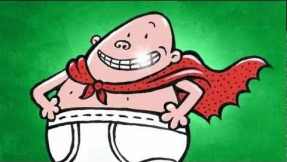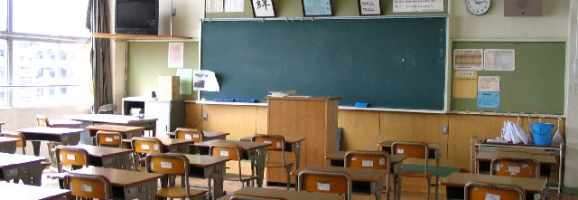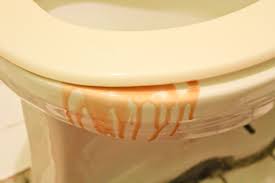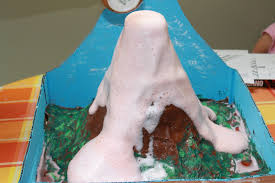Captain Underpants as a Critique of the Public School System
In a wild time, a gallant hero once fought mutant toilets, a Medusa lookalike that gave wedgies, and bionic boogers. And after a decent run in saving the city of Piqua, Ohio just over half a dozen times, Captain Underpants had his time to rest. But in 2012, the semi-nude savior served again as the subject of Dav Pilkey’s hit series named after the briefed bravado himself. Once more, the classic children’s book from the 2000’s surges in popularity and Captain Underpants is again a household name.
As I’ve matured through the years, I used to look back with rose-tinted lenses at the countless hours I spent reading and rereading the series. When I finally picked up the first book again, I was absolutely shocked at the deeper message behind the shenanigans of George Beard and Harold Hutchins. It’s absolutely clear that Dav Pilkey actively criticizes the American public school system in the original run of Captain Underpants (series).

In a book filled with potty-related humor, attacking one of the largest systems of employment in America would be a shot misfired, a black sheep, something that doesn’t belong. However, the author works in subtle details that lead to an all but obvious criticism of public education, addressing several issues that current public schools struggle to deal with.
The most prominent issue that Pilkey deals with is the fact that the public school system has yet to raise educational standards to match global growth. This is a broad topic, but most basically refers to the lack of academic rigor that American schools have in comparison to Western European, Scandinavian, East and Southeast Asian schools of pre-collegiate education. The critique of this topic is so rampant within the novels that it’s used as many the foundation of many comic situations. Take, for example, the various activities that teachers assign to their classes. Scenes taking place in class often include drawing, making arts crafts, and various other projects. Hardly are the children ever engaged in an intellectually stimulating activity. One might argue that arts and crafts take creativity, but this point is largely mitigated because at the elementary level, nobody is tapping into ones’ inner Picasso. It is also important to note that when students are engaged in academically laborious work, it’s imposed upon them with restrictions and regulations. Take the letter-writing scene in book five, Captain Underpants and the Wrath of the Wicked Wedgie Woman. One of the teachers will be leaving soon, and her students are given the assignment to write a farewell letter for her. Letter-writing is a forgotten art with the ubiquity of email these days, so this doesn’t seem like a terrible practice. However, the students are given an outline to follow, exact words to copy, and a template for the cover of her card. In no way are they actively engaging with the material and assignment they are assigned; they are spoon-fed the answers and given the resources to completely cut off any required effort.

School isn’t completely about academics, particularly elementary schools. Extra-curricular programs and creative activities are a major part of the elementary school experience. Modern American public school systems, in Pilkey’s mind, are able to mess this up somehow. I mentioned above that classes at Jerome Horwitz take time to constantly do crafts and art. This might have been a decent time to expand on creative ventures and spark interest for the arts. The teachers manage to bypass these benefits by setting constraints on what is allowed to be created. In the segment in the previous paragraph about creating the farewell card, a girl happened to draw a butterfly on the card in an effort to beautify and make unique what was given to her as plain and normal. For acting on her own decisions, she was punished and her card was torn in pieces. This is the scene in which Pilkey most explicitly shows the complete control teachers exert over the creative content of children.
Who’s fault is it that children are not receiving the education America needs to compete? Pilkey argues that teachers are to blame, for a spectrum of reasons. The author weaves important details that reveal his condemnation of the behavior of public school educators. We’ve already covered the fact that teachers fail to set a standard of education beyond what is required by the government, enacting pointless classroom events and slowing academic growth by disengaging students intellectually with mundane and repetitive assignments and projects. The list of faults modern elementary school teachers bring to the classroom extend far beyond a lack of academic rigor, and to compile the full set of complaints Pilkey has, one needs to look closely at the teachers of Jerome Horwitz Elementary School.

Miss Tara Ribble is the most frequently mentioned of the teaching staff at Jerome Horwitz. Cruel and uncaring, she is constantly grumbling about her students to other teachers or to her class itself. Her name reflects her personality; at a brief glance, she’s just a miserable (Miss Ribble) person, but upon closer inspection, she’s terrible (Tara Ribble). Despite having no patience for immaturity and lack of focus, Miss Ribble drags herself to complete the grueling work that is teaching children. Her classroom is the most commonly featured doing pointless activities such as origami or drawing. She is the despotic ruler of the classroom, yelling at one of her students for drawing a butterfly on her farewell card. The tyrannical teacher also is petty and shallow, as shown during her wedding in the fifth book. Tricked into marrying Mr. Krupp, the principal of Jerome Horwitz, she rejects him at the altar because his nose was not of her desiring.
Miss Ribble is the stereotypical teacher who teaches for the paycheck. Her attitude towards children is a clear indicator that she does not teach for the joy that comes with working with youths. Neither does she find value in that she’s setting up the future by instructing kids, shown by her less than stellar class room schedule which seems to be filled with pointless art projects and meaningless assignments. If she isn’t teaching for the sake of children or her country, there’s only one thing keeping her at Jerome Horwitz: access to a steady paycheck. According to the Bureau of Labor Statistics, the most common major employer throughout the United States is public education. Piqua, OH is no different, with the Piqua City School District having the third highest number of employees in the city, employing roughly 15% of the cities workers. The other highest employing workplaces are all tech companies with the exception of Walmart. This trend is a common one within American cities; while non-collegiate public education are typically top employers in any given city or town, the other top employers are typically technology and medical development/production companies and large corporate businesses. As a result, people who need jobs but are unqualified to work at these large firms turn to the public education system. Undereducated, underqualified, and with no motivation to teach children, it’s clear that Pilkey wanted Miss Ribble to represent the worst in teachers.

It’s also important to note the polar opposite, also exhibited by Miss Ribble herself. After her plight in the fifth book, the protagonists of the series, Harold Hutchins and George Beard, hypnotize their miserable teacher to become the most lenient and child adoring teacher in the school. Though her students appreciate the change in character, Pilkey does not. In fact, one may argue that she was a better teacher in her tyrannical form, because at least then she forced on her students the ethics of discipline. Instead, as the “nice teacher” stereotype, Miss Ribble loses all control of her class. She is unable to punish those who require disciplinary action because she is a “nice teacher”. Though she bakes cookies for her class, this distracts them from their education and from any school-related activities. Eventually, she allows her students to determine the class curriculum, allowing Harold and George to show how “Squishies” are set up (by putting folded ketchup packs in between the toilet bowl and seat so the condiment splatters over the unfortunate soul who wants to use the bathroom).
Pilkey condemns teachers who are overly lenient. Those who do come to teach children because they enjoy working with them often are unqualified teachers. They may love younger students, but their lack of will to enforce rules and trouble their young charges interferes with the ability to enforce high academic and behavioral standards. The contrast between Miss Ribble’s character progression serves as the author’s reproach of a common path for teachers. Because it’s easier to garner the affection of children by being kind, teachers will gravitate towards working at developing the personality of being ‘nice’; however this often leads to becoming weak-willed and unable to control the academic progression of the class. However, the inverse is not necessarily true either. Being strict will not necessarily increase academic performance or behavioral standards, as Miss Ribble enacted an equally unproductive class schedule and her students were just as unruly before her change.
With the staff at Jerome Horwitz so unified in their hatred of children, it’s easy to overlook some of the lesser teachers who play an equally important role in fleshing out Pilkey’s criticism. Mr. Fyde is one of these lesser noticed instructors, and while he doesn’t outwardly despise young children, he represents other common flaws in teachers. Mr. Fyde is a science teacher at Jerome Horwitz that is disconnected from his students. Unable to comprehend their immaturity and youth, he interacts with his class awkwardly. Because of this disconnect, he struggle to control his students and often let them dictate the direction of his class time. Though he is a man of science, he fails to properly control a simple vinegar and baking soda demonstration, showing a lack of proper training. Altogether, his name suits him quite well, as he is constantly mystified (Mr. Fyde) by the demands of his job.

The aspect of Mr. Fyde’s behavior that is the most problematic is his inability to control his class due to his lack of understanding of his students. He doesn’t understand that kids want to joke around and play pranks, and thus, he’s unable to comprehend why his class makes animal noises in class, one of the prime reasons he quit his job eventually. This lack of insight allows his class to continually wrest his authority from him. It’s easy to see how this kind of weakness is disruptive and impacts the learning environment of school negatively. Having had a good number of these kinds of teacher myself, even in college, any small tangent made by an innocent question can lead to significant divergence from class plans, leading to an irrelevant and unproductive class period. A strong connection with one’s students is essential, and Pilkey points out the negatives of lacking this trait.
Through the characters in the series, Pilkey denounces various undesirable characteristics common in modern public school teachers: unmotivated, lack of balance between leniency and strictness, inability to teach at a suitable difficulty, void of productive class time, unprepared, and underqualified. All of these qualities facilitate in creating an environment unsuitable for the development of young minds, and the author doesn’t fail to address any of these issues. Though written for children, Captain Underpants doesn’t pull any punches in pinpointing the weaknesses of public schools. It’s been 17 years since the first installment of the series was published, and the situation hasn’t gotten too much better. It looks like the skivvied superhero has yet to taste success in his skirmish in teaching the States how school should be run.
What do you think? Leave a comment.











I loved “Captain Underpants” while I was growing up. I always thought it was more of a silly book for rebellious kids to read, I had not realized that there were so many implications about the education system!
It’s worth a re-read if you can handle the scat, urine, and all porcelain bowl related humor 🙂 Relive those glory days!
Same here!
I think this is an insightful take on a childhood favorite. However, I would question the notion that teachers are apathetic and only concerned with structure when it comes to work. In many instances, teacher have to meet certain mandates and benchmarks, and it is out of their hands. Institutionalized testing and assessments are often implemented from higher up, which can be seen as a means of harsh teaching methods.
Thanks for reading the article! I completely agree that it’s mostly the administration and bureaucracy that dictates the seemingly disconnected attitude of teachers, and I actually wrote a whole thing on how Pilkey explores this, but I couldn’t find a way to integrate it into the essay as whole while keeping the length at an appropriate length. You could try to explore that; it’d be a really cool follow up!
“Keeping the length at an appropriate length.”
That is correct. Although it sounds contradictory, most teachers have no power to question or make changes to the school system.
If parents withhold Captain Underpants from their children for a fear that it is not ‘educational enough’, they will be depriving them of a witty, loveable, well developed series that could be the one that gets your non-reader hooked on books.
Actually my 6 year old son loves Captain Underpants. We usually snuggle up and read it together, and he giggles hysterically. I’m glad to see him enjoying reading.
I was the only girl in my elementary school who read Captain Underpants! It was just so cool as a kid. And everything you bring into this article make it even greater. Thanks for writing!
Your comment makes me wonder what elementary school girls read 😛 . I’m glad you enjoyed the article! It’s really interesting how age changes how one looks at things.
I must say after my first reading, I was a little less than thrilled about CU. However, after changing my adult perspective to one of the age range for which the books were written, I have a different opinion. I think that George and Harold’s fascination with creativity could inspire readers to tap into their creative side and also teach children to use their idle time more effectively.
It still surprises me when the series ends up on the annual top 10 Banned Books List every year.
My mom actually took my books away after I read them for the umpteenth time. Is it still a banned book? That really surprises me.
These books are tame compared to some video games that these same parents purchase for their adolescent sons to play for hours at a time. More violence is viewed every Sunday watching professional football. How about professional wrestling? I’m just saying, if we are going to censor these books we should be consistent and cut out all of these other activities as well. I don’t hear any of these people suggesting that we ban professional football.
My children are totally enamoured with this series. The author has quite the imagination and sense of humour.
I think you make some very good points here. I’m minoring in education studies and agree with your point that a teacher has to balance their authority with kindness, and that the wrong mixture could be disastrous. I would however like to say that I have seen “pointless activities such as origami or drawing,” used as great hands on methods to explore higher concept learning, but I think you are right in saying that these lessons need to be directed in such a way that it is interesting and enriching for the students. I haven’t read CU since my elementary days but now I’m really interested to see if there are any critiques on the larger educational system along side the commentary you pointed out about teachers; the often dysfunction bureaucracy within the school system, like benchmarks and standardized testing, really do play a large part in the failures of the American school system. Really interesting read, thanks so much!
I’m glad you enjoyed the article 🙂 I actually came up with most of these ideas on an AP exam I took a while back, and just thought I’d expand on those ideas.
I think Pilkey makes a point of criticizing administration and lack of focus of students as well, but I couldn’t find a way to integrate those smoothly enough for it to be a comfortable read, so I took those out altogether. I do recommend trying to find the satire (real or not) in the CU series. Best of luck! Hope you find what you’re looking for.
I really enjoyed the Adventures of Captain Underpants series and felt that it was good entertainment for all ages.
Pilkey has created a masterpiece.
I love Dav Pilkey’s “Ricky Ricotta’s Mighty Robot” and “Catzilla”.
This entire series is one cancerous tumor leaching on every thing we consider printed word. That this monstrosity is even considered a novel is a direct insult.
It is not for everyone, and I see why some parents may think it is crude, but I think it is all in good fun and understand why 8 or 9 year old boys would enjoy them.
I wonder how this series reads in countries other than the United States. A quick perusal of the Wikipedia shows that the series has been translated into over 20 languages. Is the apathetic teacher relatable to audiences universally? Perhaps this is a critique of education practices in general? I wonder.
Because the books are easy and fun, it can be used to get reluctant children into reading.
I love your comment “the public school system has yet to raise educational standards to match global growth.” I feel this on the university level where the professors are still entrenched in the 20th century when it comes to the use of technology in the classroom. How are college graduates to be prepared to interact in the global setting when they have not been educated to communicate on a global level? Thanks for your insights!
I can’t imagine this is any better at any other level. There is an incredible technological generation gap separating the young from the old, and the old NEED to catch up. Parents and educators are supposed to know more than their children, so they can, you know, actually teach them something. Not just about HOW to do things, but the ethics concerning what they do. Sure, children can teach themselves how to get around the internet just fine, but how can they possibly learn how to act responsibly in a world permeated by cyberspace if the older generation can’t understand how that world works? Fortunately, this will certainly improve as more and more children of the digital age grow up and obtain the capacity to teach the next generation. But that doesn’t mean we shouldn’t try and make things better now.
Get back to me when public schools are as well-financed as Fortune 500 companies.
What was surprising about Capt Underpants is that Pilkey manages to bring character development to the table and these unassuming books hold a lot more than we think they do.
So true, so so true. Looking back at it now, it seems almost impossible that I missed such obvious clues hinting towards the criticisms of schools. I remember enjoying South Park in my early teens for the same reason I enjoyed these books– the potty humor. Now, every satirical reference just seems to slap me in the face and scream, “Duh!”
Captain Underpants is high-spirited and good-humored, and features a take on the adult world that anyone will appreciate if they have an inkling of a memory of what it was like to be young. I found them quite enjoyable. They are suffused with intelligence, which is a welcome change from most children’s books. They parody the conventions of action/fantasy comics by combining them with potty humor that stops far short of being scatological. I seriously recommend them to anyone, adult or kid, who finds that life is too serious and grim. If they don’t brighten your day, I feel sorry for you.
I loved reading the captain Underpants series when I was younger because of the humor and how its structured like a comic book which kids love to read at comic stores.These books were enjoyable to read because of how it is made into a comic which made them enjoyable to read and how they use the kids point of view of how they see the world either its the teachers being somewhat of the bad guy and can relate to a lot of kids that go to school.I would suggest kids to read these certain books because of the humor and can show that life isn’t always serious and can be happy.
I have strong feelings towards the educational system and other systems of our government as a whole. I would like to direct all readers’ attentions to my blog at missionsofwar.blogger.com where I am trying to produce an awareness of our country’s blemishes that need fixing. Thanks
Captain Underpants and Wrath of the Wicked Wedgie Woman is a FUNNY book. I’ve rarely laughed with childish delight so much in my life.
I loved the article’s analysis of the Captain Underpants books (and I like the names as well)! Taking such a childish and silly book and writing a scholarly article on it was a brilliant idea.
However, I do sometimes feel that your claims about the public school system are unjustified. For one thing, to call the attitudes of individual teachers a problem with the system seems incorrect, though I may be wrong on that point. For another thing, I see no reason why we should believe these problems are as rampant as you claim. Perhaps these books match the experience with some in the public school system, but as a former student of a public school (high school class of 2011), I found many of my teachers were excellent. You only address your source for these claims once – when you mention you are a student who has personal experience with teachers similar to this – but since we all either are or have been students (and likely have been recently students if I understand the readership of this site), I don’t feel that this gives you any special insight. Perhaps if you were a teacher, I might take your claims more seriously (I am not a teacher), but what would really help is some sources. I think your analysis of a text can be completely original, but for me to buy what you say about the world, I need to see where you’re getting your ideas.
Again, excellent treatment of the books. And if this article was just about the author’s view of public school teacher’s, I would be fine. I just take issue with your more general claims like, “It’s been 17 years since the first installment of the series was published, and the situation hasn’t gotten too much better.”
I’m glad you enjoyed the article! I hope I can churn out some more stuff along these lines in the future.
I just wanted to point out that I’m making points based on what I see in the novels, which may or may not reflect my own personal views. Nor am I really try to convince anyone; like you said, it’s just a fun little piece that throws together some information from a book I enjoyed as a kid.
Though perhaps I could throw in some statistics form the OECD that proves American public schools fall short of other developed nations in the areas I mentioned in the article.
I’m always looking to improve. Thanks for your comment!
I remember reading Captain Underpants when I was younger. I think my parents were a bit disgusted by the books, but my sister and I had a lot of fun with them. I’ll have to reread them now and think about how the school system is portrayed. Interesting article!
Ahh, Captain Underpants. Definitely a fun series! I like that you’ve delved a little deeper into that. It’s true that the school system can be very flawed, though of course experience may differ for everyone.
I can recall teachers who were not willing to teach, perhaps their pay was bad. Perhaps they felt they didn’t need to teach these kids and could just sit through the class, letting it go to chaos as they sat back and read a magazine. So if a student was failing a subject or could not understand the material, there would be no suggestion of tutoring or assistance for them. And when the teacher was not teaching much in the first place, that would bring more difficulty.
Still, at face value, the books were enjoyable. But when thinking of them this way, there is a message that still stands.
I love Captain Underpants! I read the Spanish version when I was studying. Basically, anyone who’s challenging this book is announcing to the world they haven’t picked it up, much less read it.
I agree with much of what you said. In your fourth paragraph, you say, “The most prominent issue that Pilkey deals with is the fact that the public school system has yet to raise educational standards to match global growth.”. According to some studies, the U.S. ranks in the bottom 10% of all developed nations when it comes to education. I’ve seen a video that shows students from Belgium laughing at what the American education system considers “difficult”.
However, in your fifth paragraph you say “Who’s fault is it that children are not receiving the education America needs to compete? Pilkey argues that teachers are to blame, for a spectrum of reasons. The author weaves important details that reveal his condemnation of the behavior of public school educators. We’ve already covered the fact that teachers fail to set a standard of education beyond what is required by the government, enacting pointless classroom events and slowing academic growth by disengaging students intellectually with mundane and repetitive assignments and projects.” Unfortunately, the government does have too much control of what happens in public schools. But instead of blaming teachers, Pilkey should look at how to change the system. It’s not as easy as it looks. Things should be different, but unfortunately some public school teachers have their backs against the wall and don’t know how to fight back. I’m not talking about bad teachers; I’m talking about teachers who feel stifled in their own job. I don’t watch much of this show, so I’m not one to criticize Pilkey. I do hope – however – that he’s included criticism of the government and reform policies as well.
An insightful article that, to my chagrin, reminded me of my own teaching experience. I didn’t teach elementary school, but I tried very hard to be “nice.” My students took advantage of that, so I tried to crack down, but that turned me into Dr. Jekyll and Ms. Hyde. As the article points out, in many situations, teachers just can’t win. And more importantly, when we don’t win our students don’t, either. We blame our students and ourselves for this, but what we should really be doing is asking questions. We should admit the system is broken and openly discuss what we can do to fix it.
Where did you learn this writing style…
“…employing roughly 15% of the cities workers”?
Shouldn’t that be “city’s”? Sister Mary Bernard would be so disappointed…..
It would seem that Captain Underpants fell to the wayside again. Probably less expected considering that from the article there was a bit of depth from the implicit message.